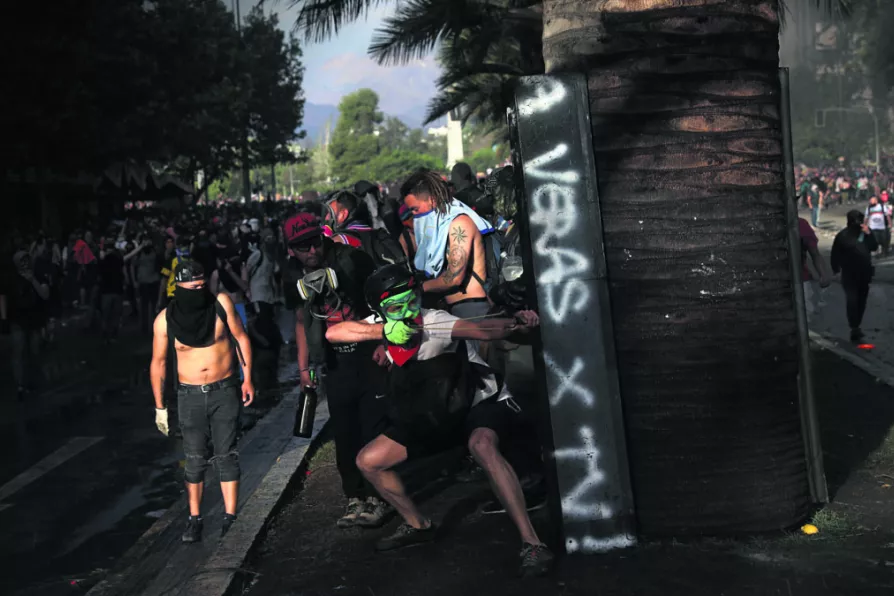As figures from Tucker Carlson to Nigel Farage flirt with neofascist rhetoric and mainstream leaders edge toward authoritarianism through war and repression, the conditions that once nurtured Hitlerism re-emerge — yet anti-war and anti-imperialist sentiments are also burgeoning anew, writes ANDREW MURRAY

 Chilean protesters have forced billionaire President Sebastian Pinera onto the defensive
Chilean protesters have forced billionaire President Sebastian Pinera onto the defensive
IT ALL started with a minor misdemeanour by school students who collectively refused to pay fares on the Santiago metro in rejection of a price hike (to 830 pesos: 86p). This was part of a brutal austerity package, decreed by Chilean President Sebastian Pinera on October 6 2019.
On October 18, 78 metro stations, some banks, 16 buses and a few public buildings were set on fire by mysterious hooded men who were able to operate with impunity.
On October 19, Eric Campos, president of the Metro Workers Union, declared: “Strange that the police who were supposed to have been guarding the stations, were not there when they were set on fire.”

FRANCISCO DOMINGUEZ says the US’s bullying conduct in what it considers its backyard is a bid to reassert imperial primacy over a rising China — but it faces huge resistance

For the first time in years, the dominant voice within Chile’s official left comes not from neoliberal centrists but from the world of labour, writes LEONEL POBLETE CODUTTI












